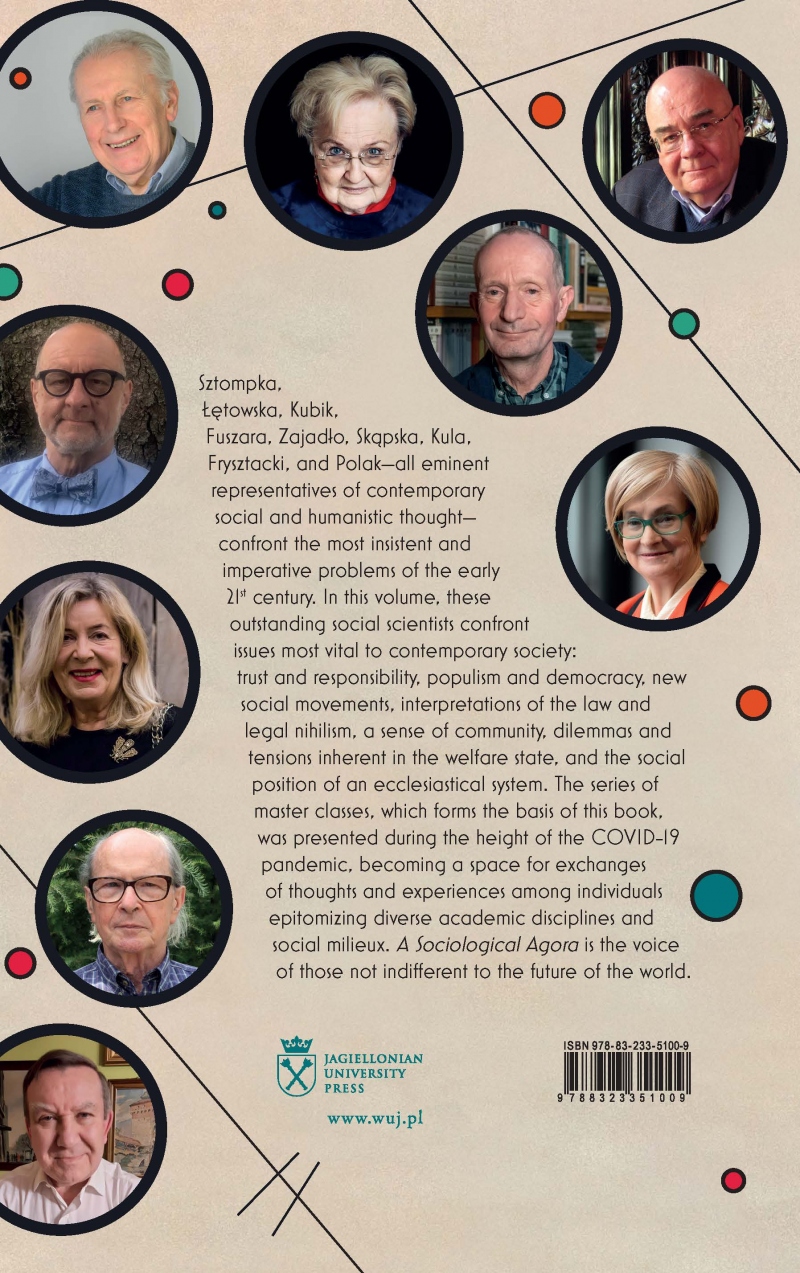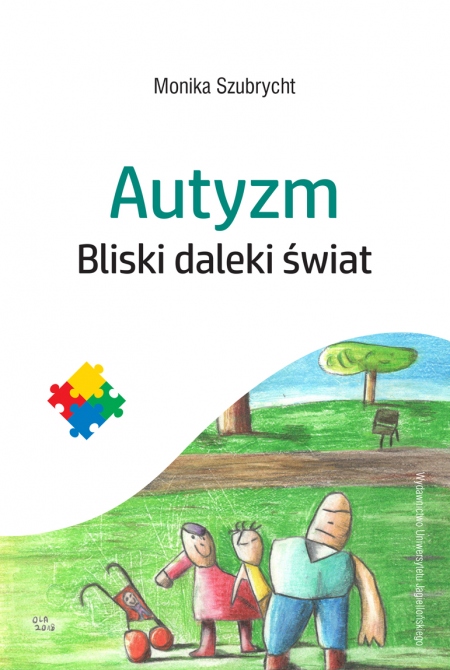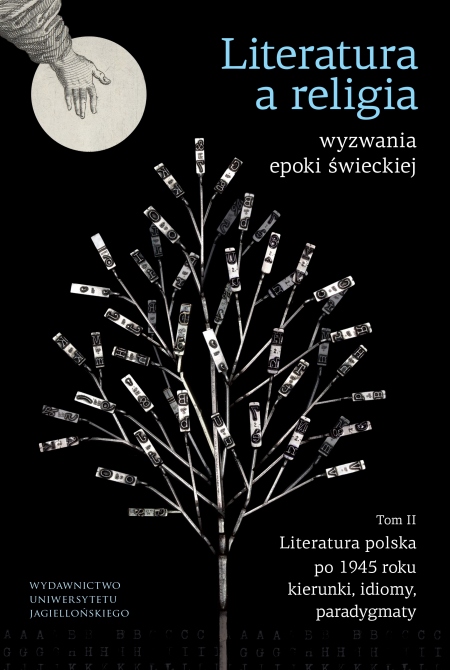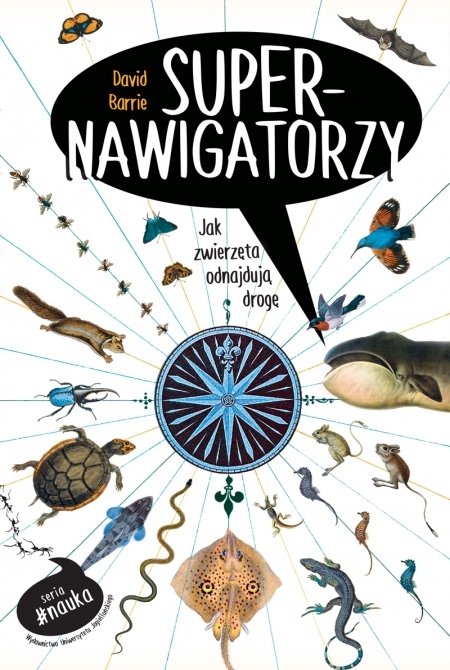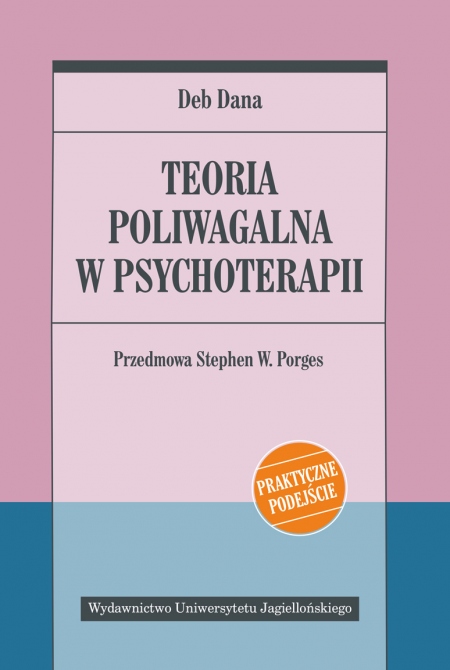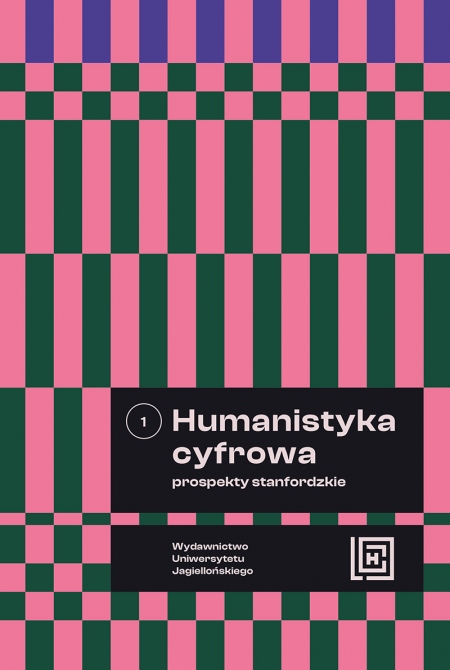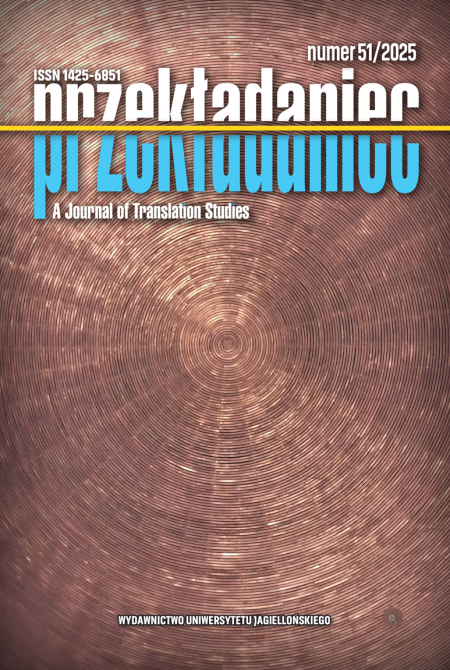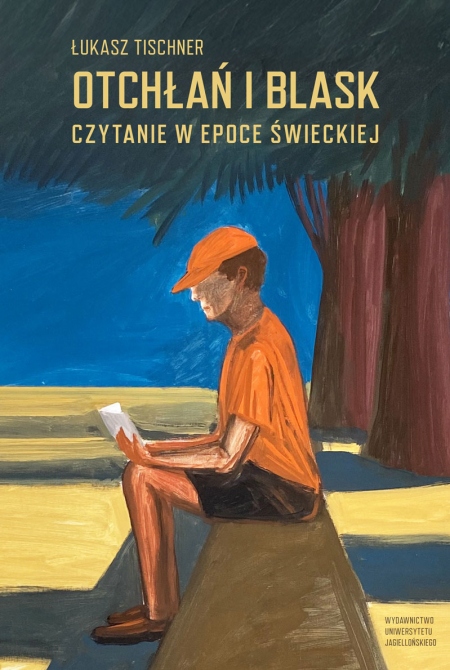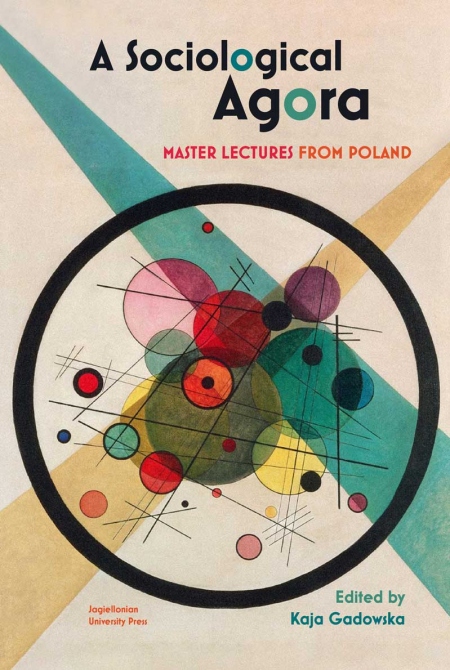
A Sociological Agora
Master Lectures from Poland
Redakcja: Kaja Gadowska
Przekład: Annamaria Orla-Bukowska
Opis książki
Sztompka, Łętowska, Kubik, Fuszara, Zajadło, Skąpska, Kula, Frysztacki, and Polak – all eminent representatives of contemporary social and humanistic thought – confront the most insistent and imperative problems of the early 21st century. In this volume, these outstanding social scientists confront issues most vital to contemporary society: trust and responsibility, populism and democracy, new social movements, interpretations of the law and legal nihilism, a sense of community, dilemmas and tensions inherent in the welfare state, and the social position of an ecclesiastical system. The series of master classes, which forms the basis of this book, was presented during the height of the Covid-19 pandemic, becoming a space for exchanges of thoughts and experiences among individuals epitomizing diverse academic disciplines and social milieux. A Sociological Agora is the voice of those not indifferent to the future of the world.
In the midst of a pandemic, the Jagiellonian University’s Institute of Sociology in collaboration with its Interdisciplinary Center for Socio-Legal Analyses as well as the Polish Sociological Association organized a series of Master Lectures. Presented virtually and open to the general public, these meetings with eminent Polish scholars addressed the most crucial and tenacious issues of our times. Active in their homeland as well as globally, the speakers are recognized specialists in sociology, jurisprudence, history, social work, gender studies, philosophy, theology, anthropology, and political science. The format encompassed a lecture followed by an online discussion with all interested attendees; the texts found herein comprise the fruits of those encounters. Disregarding geographic, temporal, and physical divides, this cyberagora created a space in which masters could find themselves amidst colleagues and students, sharing ideas, views, and experiences drawn from various academic disciplines and social milieux.
We are witnesses today of the progressive fragmentation of the sciences into ever more contracting sub-disciplines and specializations. This is leading to an acute deficit of holistic and dauntless scrutiny into our problems with all their grandiosity. Intensely missed is bold synthesis, a gaze anchored in deep wisdom and far-reaching knowledge, and an approach that is both friendly and open – all geared towards the sharing of our perceptions of quiddity.
This is why this Master Lectures series – to which notable personages of contemporary social and humanistic thought of great intellectual achievement and social authority have been invited to speak – is so important. All the texts in the volume at hand refer to a broad intellectual field; striking, too, is the fact that all are strongly marked by an axiological dimension. The topics undertaken in this volume address key quandaries of our contemporary times.
Anna Giza, Warsaw University
The volume at hand comprises a collection of nine lectures presented by eminent representatives of the social sciences: professors of sociology, legal studies, and theology. These scholars are of high standing in Poland, several are known in the world. The lectures – although varied in form, style, level of generalization, and the nature of their commentary on current affairs in Poland – constitute a coherent whole. Composed in appropriately clear language, the texts are unencumbered by excessive references to specialized literature.
The present-day situation in Poland is treated very competently, though sometimes charged strongly with criticism. Certain of the theses, underlying messages, comparisons or juxtapositions found in this very interesting book could be considered (especially by a more conservative reader) debatable. Nonetheless, this material is all the more significant as an intellectual portrait of the mainstream, scholarly elite in Poland Anno Domini 2021. It can be well expected that this volume will give rise to serious intellectual debate.
Krzysztofa Motyki, Catholic University of Lublin
About the Editor
POLECANE KSIĄŻKI
NOWOŚCI

Wybierz rozdziały:
Wartość zamówienia:
0.00 zł
